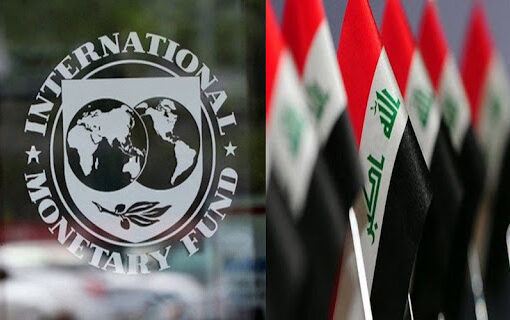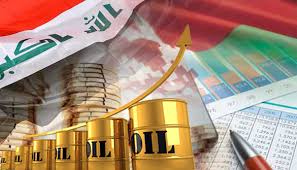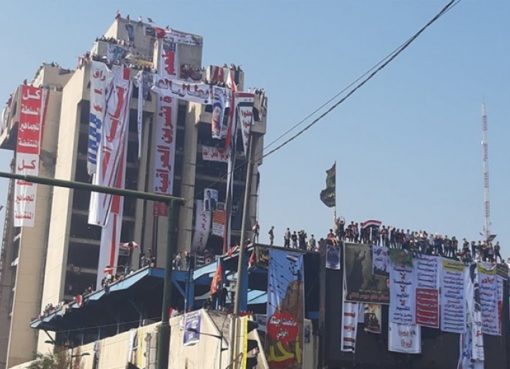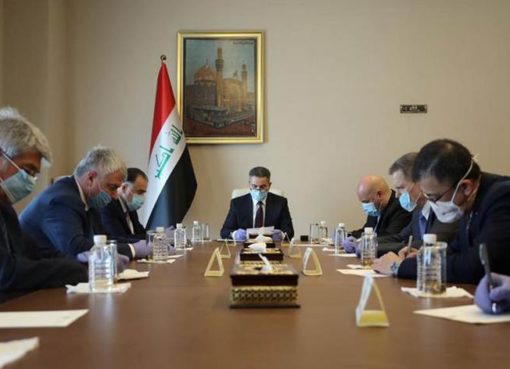
Baghdad, Iraq, 12 December 2018 – A delegation from the United Nations in Iraq and the European Union Mission to Iraq yesterday toured a number of EU-funded and UN implemented projects in Mosul, seeing first-hand the clearance, stabilization, rehabilitation and development work undertaken in the northern Iraqi city more than a year after its liberation from Da’esh. Illustrating the joint efforts in post-Da’esh Iraq, the EU signed a contract with the UN Development Programme (UNDP) worth 47.5 million euros, another with UN Mine Action Service (UNMAS) totaling 10 million euros, and announced 20 million euros in additional support for UNESCO as well as a further 15 million support for FAO, to be signed in January 2019.
Baghdad, Iraq, 12 December 2018 – A delegation from the United Nations in Iraq and the European Union Mission to Iraq yesterday toured a number of EU-funded and UN implemented projects in Mosul, seeing first-hand the clearance, stabilization, rehabilitation and development work undertaken in the northern Iraqi city more than a year after its liberation from Da’esh. Illustrating the joint efforts in post-Da’esh Iraq, the EU signed a contract with the UN Development Programme (UNDP) worth 47.5 million euros, another with UN Mine Action Service (UNMAS) totaling 10 million euros, and announced 20 million euros in additional support for UNESCO as well as a further 15 million support for FAO, to be signed in January 2019.
The conflict with Da’esh has destroyed many areas of Mosul and Ninewa Governorate, and displaced a large number of the population. Since the military defeat of Da’esh a year ago, many people have returned, encouraged by the efforts to ensure a secure and safe environment. Some areas still lack basic services, and the UN, in support of the Iraqi authorities, are working to ensure a decent living for the people to facilitate the dignified return of Internally Displaced Persons (IDPs).
The delegation called on the Governor of Ninewa, Nawfal Al-Agoub, after which a signing ceremony was held.
EU Director for Development Cooperation for Asia, Central Asia, Middle East/Gulf and the Pacific Region, Pierre Amilhat, said: “The Iraqi people have suffered enough, and the country is on the cusp of entering into a renewed phase of state-building. Today exemplifies the strong commitment the EU along with its UN partners have in shouldering Iraq in this critical phase. With the territorial defeat of Da’esh, all of us together have a window of opportunity to build an inclusive and accountable country and restore the trust between the people and their Government. This multi-pronged initiative will join the dots between the various reconstruction components, and significantly contribute to the betterment of the Iraqi people”.
UNDP Resident Representative a.i. for Iraq, Gerardo Noto, said: “We are grateful to EU for our excellent partnership. We jointly help people of Iraq so that no one is left behind as all UN Members Countries committed in the Agenda 2030 and Sustainable Development Goals (SDGs). This is yet another practical example of support to the authorities and citizens of Iraq in regaining the trust of the local communities and rebuilding the state institutions towards a new social contract to sustaining peace and sustainable development”.
Earlier, the EU-UN delegation visited the Old City, site of some of the worst fighting – and destruction. They inspected the reconstruction work at the Al-Nuri Mosque, a symbol of Mosul’s history and culture that Da’esh deliberately destroyed its landmark leaning minaret before their retreat from the city. The work is part of ongoing projects to repair heritage sites by UNESCO throughout Mosul Old City’s funded by the EU.
UNESCO has launched “Revive the Spirit of Mosul”, an initiative that has the support of the Government of Iraq and in line with the Initial Planning Framework for Reconstruction of Mosul, which was jointly developed by the United Nations Human Settlements Programme (UN-Habitat) and UNESCO in collaboration with the Governorate of Ninewa, to rehabilitate Mosul’s rich and diverse cultural heritage. Restoring the identities within the communities of Mosul and other liberated areas of Iraq contributes to reconciliation and promotes more just, peaceful and inclusive societies.
“UNESCO is very grateful to the EU for its contribution to the reconstruction and restoration of the Old City of Mosul, in the context of the UNESCO ‘Revive the Spirit of Mosul Initiative’. This support contributes to the physical reconstruction of one of Iraq’s most emblematic historical cities, which has been severely damaged and destroyed. It also benefits directly the local community – by providing skills and jobs to thousands of young people” stated Louise Haxthausen, Head of UNESCO in Iraq. “We are particularly pleased that part of this contribution is dedicated to the urban rehabilitation of the old city of Basra, another highly significant historical city of Iraq,” added Louise Haxthausen.
UN-Habitat and UNDP are also working together in Mosul to rehabilitate damaged houses, repair secondary infrastructure, retrofit public facilities such as schools to promote the environmental responsiveness of buildings, and involve youth in redesign of public open spaces. Yuko Otsuki, Head of UN-Habitat in Iraq, expressed gratitude for the EU support “to continue improving the living conditions of Iraqi population through urban recovery investments and job and income generating opportunities in conflict-affected areas.”
The delegation toured Mosul University, once a major centre of learning in Iraq that Da’esh turned into a command post and weapons cache. Mosul University, Iraq’s second largest university, has suffered major damage, and it is estimated that rehabilitation work would require 350-500 million dollars. The university was cleared of explosive hazards, included Improvised Explosive Devices (IEDs).
The work of UNMAS lies at the core of the stabilization and rehabilitation work. Mindful that no stabilization work and return of IDPs can be sustainable without ensuring a safe environment, the EU signed a contract granting UNMAS 10 million euros to continue the clearance of contaminated hospitals, schools, roads, bridges, religious sites and neighborhoods.
“We are very grateful for the support provided by the international community and more specifically by the EU. With this contribution, UNMAS Iraq will be expanding the clearance capacity in Mosul and also deploy capacity in Sinjar,” said Pehr Lodhammar, UNMAS Iraq Senior Programme Manager.
The group also visited the Ninewa Directorate of Agriculture where they were briefed about a project supported by the EU and the UN Food and Agriculture Organization (FAO) to support recovery of agricultural livelihoods by revitalizing of food production, value chains and income generation in Ninewa. “I am so pleased to see the EU has agreed to help us rehabilitate key facilities and equipment of the Directorate as well as rebuilding livelihoods for so many smallholder farmers. Creating jobs in this heart land of agriculture is really key to community stabilization,” said Dr Fadel El-Zubi, FAO Country Representative in Iraq.
The EU has contributed a total of 184.4 million euros since 2016 to support stabilization and humanitarian efforts undertaken by the UN in support of the Government of Iraq.
Source: Delegation of the European Union to Iraq








Comment here